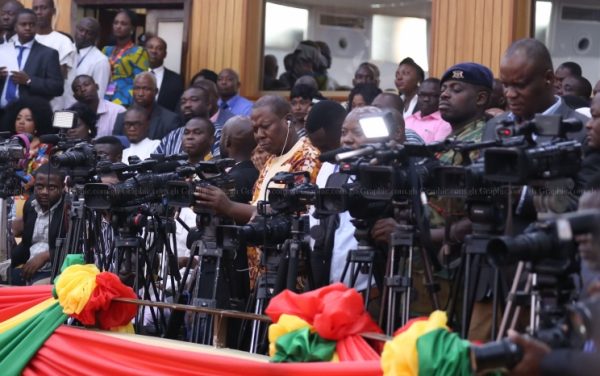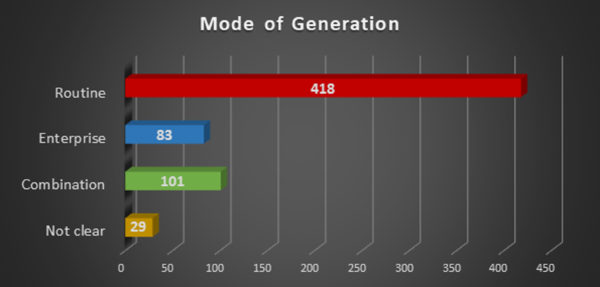
By Kwaku Krobea Asante, MFWA
Journalism is free in Ghana, but in Russia, China, Equatorial Guinea, Eritrea and many other countries around the world, it is not. In some of these countries, one has to go through very strict and depressing measures to register as a journalist; and must keep a ‘good behaviour’ to continue practicing.
Journalists in some of these countries are limited in what they can publish and are dictated to on what they can cover; in some, too, journalists are altogether killed, jailed, arrested and attacked for doing their work. This is not the case in Ghana—at least not in its intensity as with some of the countries.
In Ghana, the constitution guarantees that there be no censorship of the media, nor any law requiring a license to practice journalism or establish a media organisation.
The constitution of the country which was promulgated in 1992 also emboldens editors and publishers of the media not to be subjects to the control or interference of government. It as well insulates journalists from penalization for their editorial opinions and views.
Thus, in Ghana just anyone on the streets can set up a media outlet, pick a recorder, gather information about just anything and publish at will, and there will be no consequences or whatsoever. In fact, the constitution provides almost every thinkable condition a journalist would need to work. And every rule or regulation that govern journalism is consistent with the constitution.
But why would the framers of the constitution give such a blank cheque of freedom to the media, when many other countries have not?
Well, the answer is quoted in the Article 162 (5) of the Constitution. It reads:
So that “the mass media shall, at all times, be free to uphold the principles, provisions and objectives of the constitution, shall uphold the RESPONSIBILITY and ACCOUNTABILITY of the government to the people of Ghana.”
That is to say: the media is given this unlimited liberty so that they will ensure transparency and accountability of duty-bearers on behalf of the citizens. The laws of Ghana intentionally sets up the media to be a watchdog. The framers of the constitution held accountability high above anything else when it comes to journalism.
So, after of enjoying unrestricted practice for almost 25 years, is the media living by its core mandate of ensuring transparency and accountability of duty-bearers?
The Media Foundation for West Africa (MFWA) in an attempt to answer this question therefore conducted a study to measure the level and quality of media coverage of transparency and accountability issues in Ghana. The study monitored the coverage of 11 media organizations made up of radio, TV, newspapers and news websites.
In all, across the 11 media outlets 1,975 stories were monitored. Only 631 (32%) of the stories focused on transparency and accountability issues. Thus, in every 10 stories in the media, only 3 of them focuses on transparency and accountability issues.
What’s more, the study ascertained the commitment journalists give to transparency and accountability issues by measuring sources of the stories and the length reporters went to cover stories (mode of generation).

Source: MFWA Field Data, 2018
It established that out of the 631 stories on transparency and accountability issues, majority, 418 stories (66%), were made from already-made news (routine) sources like press conferences and press releases while only 83 stories (13%) were produced through enterprise journalism (journalists’ own initiative).
Thus, in nearly 7 out of every 10 stories, a reporter just accesses a venue or opportunity where information on incident or event merely exist, he/she picks at will and comes back to report. This is contrasted with the situation where a journalist pries, researches and follow leads to access information of public interest duty-bearers would not want divulged.
While there may be a few anecdotal evidence of the media in Ghana covering transparency and accountability issues, these numbers, in all, tell a very worrying story of a sleeping and less active media. It paints a picture of a watchdog fed with all the nourishments needed but shuns the responsibility of protecting its owners and fails to bark at intruders.
The dangers of a media which is not committed to covering transparency and accountability issues are enormous for the country. For one, it means the country is living in utter darkness with its leaders being accountable to no one. It also means that development in the country will suffer.
Media organisations would need to make more commitment in setting journalists up to learn and do more reporting on transparency and accountability issues. For a start, media houses must consider setting up Transparency and Accountability (T&A) desks that will be solely dedicated to probing and tailing issues on accountability.
Journalists on their own must also come up with initiatives and adopt enterprising means to breaking stories that are of crucial public interest. A sleeping media is as dangerous as a corrupt leader endued with power.





